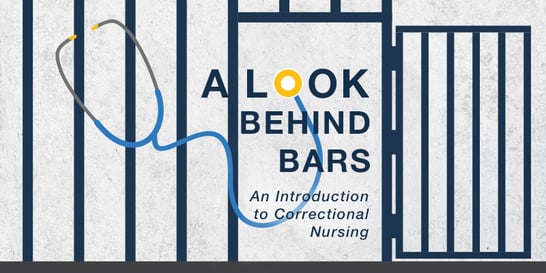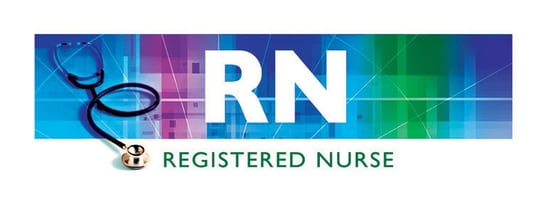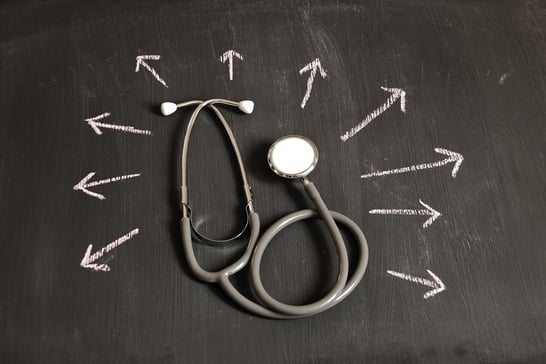 Correctional nursing is a specialty providing healthcare in jails, prisons and juvenile confinement facilities. But outside of the specialty, few recognize the importance of correctional nurses in treating an underserved population.
Correctional nursing is a specialty providing healthcare in jails, prisons and juvenile confinement facilities. But outside of the specialty, few recognize the importance of correctional nurses in treating an underserved population.
“When I came into corrections, what I found were nurses that were not appreciated for what they did — that the profession and the community thought less of them,” said Mary Muse, nursing director at the Wisconsin Department of Corrections. “As I talked to them and as I talked about nursing practice and care delivery, people would remind me that this is a jail, not a hospital. It became my passion, not only to ensure that people got good care, but that I contributed to improving the image of correctional nursing.”
Muse, who also sits on the board of directors for the National Commission on Correctional Health Care as the American Nurses Association representative, entered correctional nursing by chance. A former nursing school classmate introduced her to the field, later encouraging Muse to apply for her position. This opportunity led Muse to gain an appreciation of and passion for one of nursing’s least understood specialties.
Working in Correctional Nursing
Typical Duties and Environments
How is correctional nursing different than other fields? “Nursing is nursing, because it’s all about supporting, caring and helping people get better and managing their health issues,” Muse said. “The difference is the environment in which you practice.”
Getting comfortable with the work environment and patient population in corrections can take time, and it’s not for everyone. Yet, given the diverse population that correctional nurses serve, this specialty is similar to others. Muse points out that nurses with medical and surgical skills or a background in emergency medicine or public health are well-prepared for correctional nursing.
The environment also dictates a nurse’s caseload and how work is executed. A cellblock may require seeing a group of patients at once, while other situations require one or two patients at a time. Muse emphasizes how correctional nurses must be looking for opportunities. A patient complaining about a headache may lead to an opportunity to educate that person. Or the headache could be something the patient says because there’s something else wrong, but the individual doesn’t know how to share it.
Safety
Safety is a natural concern for those not familiar with correctional nursing, because it involves being around and treating convicted criminals. However, this reaction may be unfounded.
Through specific protocols and extensive training, safety takes center stage in correctional nursing. “In terms of safety, corrections usually does a very good job of educating you on how to be safe in the environment, and how not to be gullible,” Muse said. “What the nurse has to do is balance understanding these safety precautions ... with recognizing who we are serving but yet still seeing that individual as a patient.”
Because there are always guards present, correctional nursing is “no less risky than other [nursing] environments,” Muse pointed out. This is why many believe that correctional nursing is actually safer than other specialties and environments. In her experience, Muse is aware of limited incidents of violence; in the majority of cases, patients had mental health conditions. “For me, it was actually scarier as a student when I went on the mental health unit,” she said. Psychiatric settings were identified by The Online Journal of Issues in Nursing as an area of healthcare where workplace violence is more common, along with labor and delivery and maternal-child health units. Four out of five incidents occurred in the emergency department, leading all hospital settings. Surveillance studies reveal that more than 50 percent of emergency department nurses have experienced verbal or physical violence at work. Research is limited on safety in correctional healthcare settings. In BMC Health Services Research, a three-year study of violence among correctional health professionals in Australia found that most incidents took place in a forensic hospital, a facility for inmates who are not competent to stand trial due to severe mental illness. During the study, no deaths took place, few incidents of violence led to serious physical injury, and almost all incidents were given a medium (46 percent) or low (52 percent) rating on the severity assessment code. “Compared with health care settings in the community, correctional settings are fairly safe places in which to practice,” researchers concluded.
Resources and Population
A lack of resources for delivering quality patient care has typically distinguished correctional nursing from other specialties. “If you're looking for ease and comfort, you might not have a nice operating room, you might not have all the tools, the most equipment,” Muse said. Although facilities weren’t built for healthcare treatment, correctional facilities are starting to improve. Nurses need to be a part of the decision-making process, Muse said, to ensure that the right types of equipment and resources are available.
Correctional nurses see a wide range of patients. “Chronic disease is an issue for individuals in corrections. Now we are dealing with hypertension, renal disease, hepatitis, cancer, HIV,” Muse said. “Corrections really mirrors the community. But I would say that whether it’s a physician or nurse, if you really want to be able to see a variety of health issues, if you want to improve your clinical skills, there is probably no better place to work than in corrections. If you're interested in patient education, there’s no better place to work than in corrections.”
Employment Information
Salary
Due to misunderstandings about correctional nursing and a lack of interest in the specialty, correctional facilities need to offer competitive salaries. “The nurse leaders I know actually benchmark against hospitals in their areas,” Muse said. Sources show the competitive nature of correctional nursing.
Demand
Similar to the entire nursing profession and other nursing specialties, Muse expects demand to be high for nurses in corrections. “I think the role of the advanced nursing practitioner could be huge in corrections,” she said. “I think having registered nurses is very important to the management of this population. Certainly, registered nurses can have more of an expanded role.”
Education The 2010 Institute of Medicine landmark report, “The Future of Nursing,” called for 80 percent of registered nurses to have at least a bachelor’s degree by 2020. Since the report, hospitals across the country have begun encouraging and requiring the degree, and this applies to other nursing environments. Muse said she certainly encourages correctional nurses to earn a Bachelor of Science in Nursing, because the specialty requires a great deal of cross-sectional skills and knowledge. “Sometimes you draw more individuals who are prepared as an ADN [associate degree in nursing], and that's OK,” she said. “But in terms of what the patient needs, they need a nurse that is better educationally prepared.”
Getting Into Correctional Nursing
“If you really are passionate about care and you really believe that people deserve care regardless of their circumstances, then corrections is a great place to make that happen,” Muse said. “If you are interested in driving change, then corrections is a great place to practice.” Correctional nursing also offers considerable potential for career advancement.
Alvernia University is committed to advancing healthcare across the nursing profession. The online RN to BSN Completion Program helps nurses gain the skills and knowledge they need to thrive in fields such as correctional nursing. With a flexible and convenient learning environment, students are able to reach their goals while they maintain their current work and personal schedules.



 In honor of LGBTQ – Pride Month, this article touches upon the struggles this community deals with in their personal and professional lives. We all know how important support is from family and friends particularly for teenagers who are questioning who they are attracted to and sometimes, their sexual identity.
In honor of LGBTQ – Pride Month, this article touches upon the struggles this community deals with in their personal and professional lives. We all know how important support is from family and friends particularly for teenagers who are questioning who they are attracted to and sometimes, their sexual identity.
 While reading this article, I immediately thought of my friend who has been a School Nurse for years. She absolutely loves her job and “her kids” – that’s how she sees them. She talks about them all the time. She travels between 2 schools, an elementary school and a high school in the city of Boston. The schools are within a mile of each other. I am continually amazed at what she does for them. Some of her students don’t have the support at home they should have, so she’s always stepping in to be sure they have glasses if they need them; dental check-ups; and even clothing, including warm gloves and coats. She’s mindful of what every student needs and she’s always going above and beyond, like so many Nurses do.
While reading this article, I immediately thought of my friend who has been a School Nurse for years. She absolutely loves her job and “her kids” – that’s how she sees them. She talks about them all the time. She travels between 2 schools, an elementary school and a high school in the city of Boston. The schools are within a mile of each other. I am continually amazed at what she does for them. Some of her students don’t have the support at home they should have, so she’s always stepping in to be sure they have glasses if they need them; dental check-ups; and even clothing, including warm gloves and coats. She’s mindful of what every student needs and she’s always going above and beyond, like so many Nurses do.  Nursing assistant Tom Alligood wears camouflage scrubs during his emergency room shifts at the Dorn VA hospital because he says it helps other veteran patients realize they've "walked over the same dirt," the 62-year-old former Army tanker says.
Nursing assistant Tom Alligood wears camouflage scrubs during his emergency room shifts at the Dorn VA hospital because he says it helps other veteran patients realize they've "walked over the same dirt," the 62-year-old former Army tanker says. This video follows Stephane, RN, MSN, to give us a look into a day in the life of a Pediatric Nurse.
This video follows Stephane, RN, MSN, to give us a look into a day in the life of a Pediatric Nurse.  Correctional nursing is a specialty providing healthcare in jails, prisons and juvenile confinement facilities. But outside of the specialty, few recognize the importance of correctional nurses in treating an underserved population.
Correctional nursing is a specialty providing healthcare in jails, prisons and juvenile confinement facilities. But outside of the specialty, few recognize the importance of correctional nurses in treating an underserved population.  This video follows a Nurse named Keith Koga. He delves into his personal experiences about Nurses and how they inspired him to pursue a career in Nursing. Watch the video below to follow his journey!
This video follows a Nurse named Keith Koga. He delves into his personal experiences about Nurses and how they inspired him to pursue a career in Nursing. Watch the video below to follow his journey!
 This video shows
This video shows 

 When Nurses decide to be educated in a certain area, it is very likely they will acquire a position that allows them to utilize the skills and knowledge obtained during school and training. While many continue on in their area of expertise, some decide to change specialties and focus on another area.
When Nurses decide to be educated in a certain area, it is very likely they will acquire a position that allows them to utilize the skills and knowledge obtained during school and training. While many continue on in their area of expertise, some decide to change specialties and focus on another area.